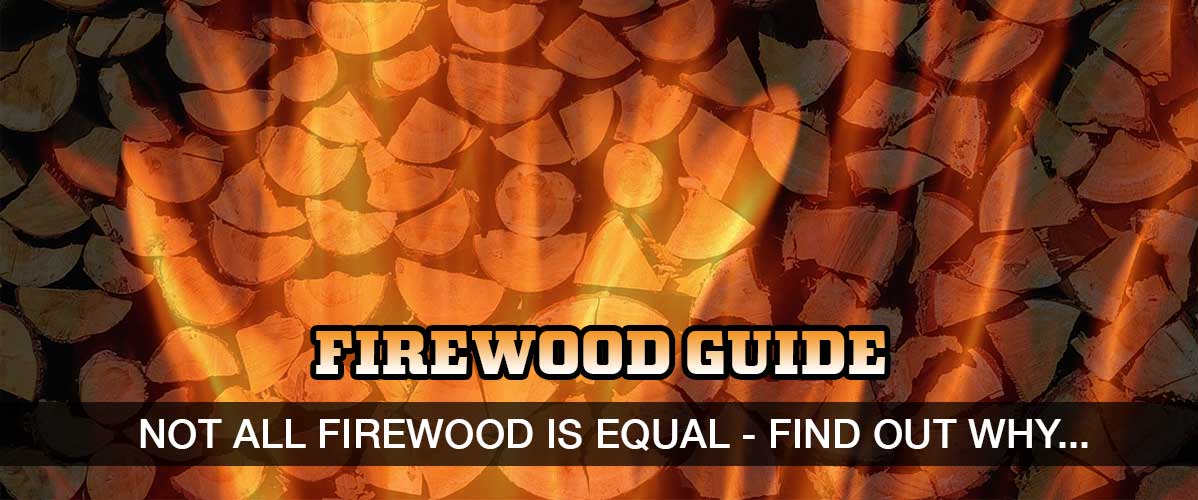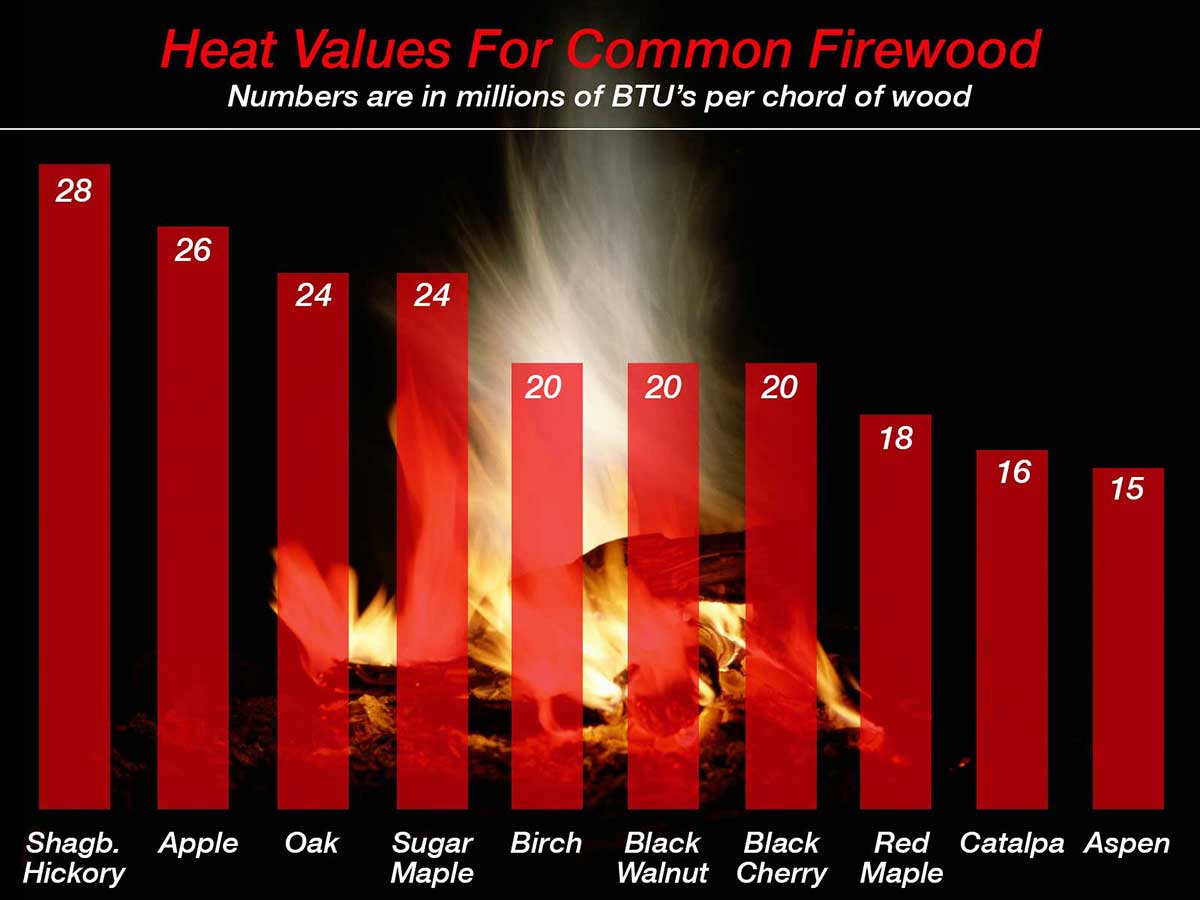
You probably already know that different kinds of trees produce firewood with different burn characteristics. This guide will help you understand which woods burn hottest, produce less smoke and why.
Hardwoods vs. Softwoods
Hardwoods come from deciduous trees that lose their leaves in the Fall. These are typically the trees that give you the firewood you'll want to burn in your house. Softwood, like Spruce and Pine, should not be burned in your house. Softwoods produce more Creosote, which is a tar-like substance that is highly flammable. If you burn softwood in a fireplace (or woodburner), the Creosote from the soft wood can stick to the inside of your chimney/flue and eventually catch on fire. Chimney fires are extremely dangerous. Avoid burning softwood in your fireplace or woodburner.
There are several factors that determine which of the hardwoods are best to burn. The amount of heat given off is measued in BTU's. The higher the BTU number, the more heat you are getting for your money. If you had your choice to buy any of the wood species as firewood on the chart below, you would choose the top rated species by BTU comparison. Having that type of selection is rarely a possibility when buying firewood. It's usually mixed species within a chord. Most of the hardwoods are just fine if price comes into play. If you get a good deal on some hardwood for your fireplace or wood burner, but it isn't the top pick on the list in terms of BTU's, use it. A deal is a deal!!!

Density & Weight
The First, and Arguably the Most Important Attribute of the best firewood, is Density. Dense wood usually burns slower, because there is more fiber packed into each square inch of wood. Conversely, the softer, or less dense a species is, the faster it will burn. (There are other factors that determine the rate at which wood burns.) Weight and density are related. Heavier firewood typically means, more dense, and therefore, better burn characteristics. Be careful if comparing the weight of hardwoods. Make sure you're comparing wood with similar moisture content. Moisture in the wood can add weight. Since water is heavy, the drier your firewood is, the better. Water is obviously no friend of firewood.
How Much Heat Does a Particular Firewood Give Off?
Hardwoods almost always burn hotter than their softwood counterparts. Heat is measured in BTU's. The higher your BTU count, the more heat you get from a particular type of wood. BTU's are often expressed in "Millions of BTU's" per chord when comparing firewood. If you have your choice of several types of wood, choose the species with the highest BTU rating. It will give you the most heat value for your money.
The Amount of Smoke Given Off Can Vary
I can't think of a time where I wished my firewood gave off more smoke. Moisture content causes more smoke to be given off and is usually the problem. If you experience too much smoke from your fire, it may be too wet. Dry firewood is best with a moisture content below 20% preferred. If you've just cut the wood, it generally takes 6 months to dry out, or become seasoned. Stack green firewood in a well ventilated area that stays dry to properly season firewood.
Splitting Ease
Firewood almost always needs split and sized to fit in your fireplace. Hardwoods vary in how hard or easy they are to split. Oak and Maple are generally easy to split, while Sycamore and Elm are more difficult. At U.S. Pride, we're usually talking about splitting with one of our cone scrw splitters on a skid loader or excavator. They split nearly everything with relative ease. Splitting ease is definitely a factor to consider if you have to split your own firewood.
Everyone Loves the Smell of a Campfire
Another aspect of firewood is how it smells when burned. Most are just fine, but there are things to consider. Wet wood can smell bad and moldy wood can smell awful. Again, dry firewood burns better and also smells the best. Hardwoods give off different scents when burned. Oak, Cherry, Hickory are all popular for their great smell characteristics.
We hope you learned something with this information on firewood! Be safe with your fires. If you're camping, remember to be careful with where you have your fire. Consider your surroundings. Have water ready to put the fire out when you're done with it. Never leave a fire unattended.
| 






.jpg)
